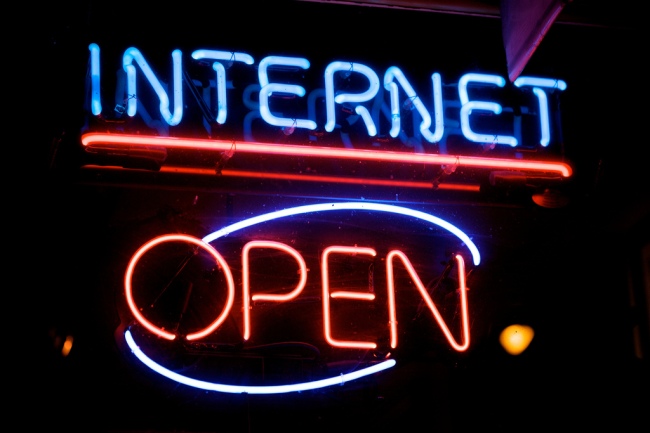Today (2 April) or tomorrow (3 April) the European Parliament will take an important decision in the matter of Net Neutrality in the EU. While voting in the frame of the well-known Single Market proposal, the MEPs will have to decide amongst various options: a main proposal tabled by the rapporteur Pilar del Castillo (a Spanish parliamentarian of the PPE – populars); counter-amendments tabled by Socialists, Liberals and Greens (Amds 234-236 and 237-244); and the complete rejection of the proposal.
The big telco industry (ETNO, ECTA, GSMA and Cableurope) is unanimously against the reform, although is not clear what the single telecom operators really want in practice. Unified in rejecting, confused in proposing.
Libertarians, civil rights and consumers organization support the Socialists, Liberals and Greens amendments against the proposal tabled by the rapporteur Del Castillo.
Neelie Kroes, the commissioner which made the initial proposal, just wrote a letter to the MEPs recommending how to vote. An unusual move, I believe, which could irritate some of them.
Remarkably, everybody plead in favor of an Open Internet. Apparently, the notion of Open Internet may vary significantly amongst institutions and stakeholders.
It is worth-noting that, according to Mrs. Kroes, Open Internet just means “no blocking and no throttling”. Unfortunately, this is a just a basic, limited vision about how the Internet environment works. Fact is, the same result of blocking could be simply achieved by telcos by charging in different way the Internet connectivity used by users or Internet providers to reciprocally connect. To make an example, if an ISP started to charge 10 Euro upon users for using Skype, this commercial behavior would be equal to a block: people would stop to use Skype because nobody would pay for a service which is normally for free. Such abusive practices happened sometimes in the past, but they did not kill Skype, because they were enforced irregularly and too late, when Skype was already sufficiently strong to resist. But: if in 2004 Internet users had systematically to pay 10 Euro or more to access Facebook in its infancy, they would have immediately given up, even if the alternative service proposed by their ISP was totally crap, because nobody had a clear idea about social networks. In other words, this kind of discriminations may kill start-up, new entrants and innovative services, while consolidated operators, irrespective whether OTT or telcos, would survive in any case. This is why the Open Internet is not a battle between OTT and telcos, is rather a battle for the citizens and their rights.
Would the above abusive charging mechanism become the norm in the market, then users would have to pay a less expensive Internet subscription to access services agreed by the ISP, and a more expensive Internet subscription to access all the rest. The Internet would be completely different now.
Mrs. Kroes does not seem aware of the above. By contrast, her initial proposal encouraged such kind of price discrimination by way of data caps and other instruments. Remarkably, the net neutrality legislation currently existing in her country, the Netherlands, prohibit the discrimination of Internet connectivity, contrary to Kroes proposal.
The proposal of Pilar del Castillo confirms the Kroes’ approach, while the counter-amendments proposed by Socialist, Liberal and Greens try to address the problem. However, the matter remains a bit unclear. An Open Internet legislation should clearly state that ISPs cannot discriminate the price of Internet connectivity in order to favor an Internet service over another. The amendments proposed by Socialists, Liberals and Greens reinforce the non-discrimination obligation in relation to network management practices. However, differentiating the price of Internet connectivity is not technically a form a traffic shaping, it is rather a pure commercial practice. Therefore, this issue remains open in my view, however we should recognize that the counter-amendments of Socialists, Liberals and Greens have the merits to get closer to the problem.
PS: The net neutrality debate appears polarized by the definition of specialized services. I am not fascinated by this debate and by defining specialized services. Technology in the Internet is complex and evolve continuously, therefore getting an appropriate, correct and neutral definition of specialized services is an hard job and risks to be become frequently outdated. In this respect, a fair and correct analysis about specialized services has been carried out by EDRI and it can be found here. Such analysis served as a basis for the definition of specialized services proposed in the counter-amendments by Socialists, Greens and Liberals.
Whatever the definition may be, it would be better to state that the price of specialized services (managed services other than best effort) should be incremental, i.e. they should not cost less than best efforts, because quality services should cost more than unmanaged connectivity. If this principle is fairly applied (it would be for the national regulators to supervise it), I do not see the risk that ISP may use specialized services to subvert the Internet environment. Whatever the definition is, specialized services could not be used to replace Internet best effort.
Categories: Net Neutrality

2 replies »